- Category
- World
What Benefits Would NATO Have From Ukraine’s Membership?
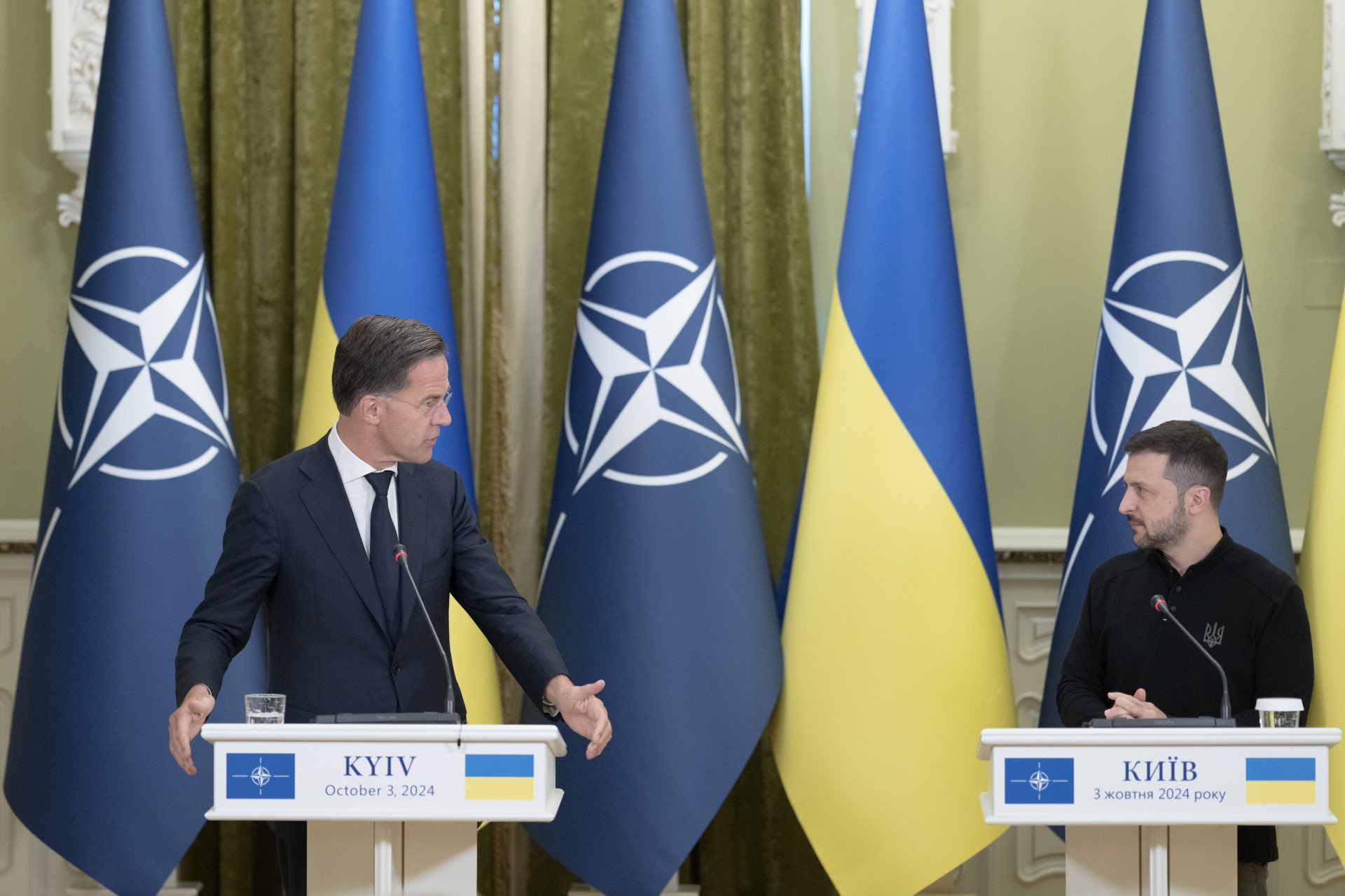
Ukraine, a long-time NATO partner, cooperates closely with the Alliance but remains outside the security guarantees of its founding treaty. While it’s clear how NATO membership would benefit Ukraine, it’s often overlooked how much Ukraine could bring to NATO—from military expertise to global security.
Ukraine’s President Zelenskyy presented his Victory Plan to the Ukrainian Parliament on October 16. During his address, Zelenskyy emphasized that Ukraine receiving their invitation to NATO would serve as a "proof of determination" and signal how NATO partners envision Ukraine’s role in the future "security architecture."
⚡ Ukraine is seeking to receive an invitation to join NATO before US President Joe Biden leaves the White House, says Ukraine's ambassador to NATO.
— UNITED24 Media (@United24media) October 16, 2024
💬 "Our idea is that giving Ukraine an invitation at this moment is a political signal."https://t.co/e02phV1K6e
While Ukraine had received support for NATO membership at the 2008 Bucharest Summit, there was more to be done to get a definitive push and concrete steps to achieve it.
At the 2024 Washington Summit, Allies declared Ukraine’s path to NATO membership as “irreversible”, reaffirming that they “will be in a position to extend an invitation for Ukraine to join the Alliance when Allies agree and conditions are met.”
There is no doubt that NATO has supported Ukraine throughout Russia’s illegal invasion. However, Ukraine would not only benefit from NATO membership but also provide NATO and its member states with advantages. What benefits are there to Ukraine’s membership as a NATO Ally?
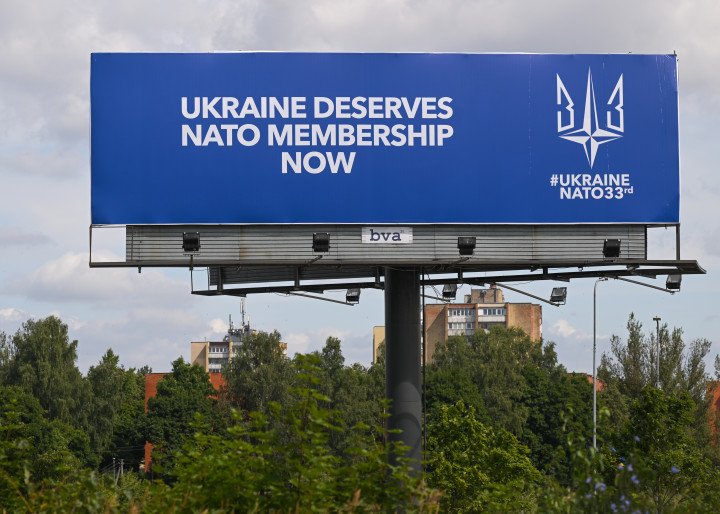
Maintaining peace
“Russia’s borders do not end anywhere,” Putin said, while addressing a televised awards ceremony for geography students in 2016, “that was a joke” he followed.
His joke became a rather large statement, as in January 2024, Russian authorities put up billboards across Russia that stated “Russia’s borders do not end anywhere.”
This morning an electronic billboard on my way to work is displaying this Putin quote: “Russia’s borders do not end anywhere.” pic.twitter.com/K7q5wUPHWN
— Steve Rosenberg (@BBCSteveR) January 15, 2024
"We are convinced that the defeat of Russia is indispensable to security and stability in Europe," French President Emmanuel Macron said.
Politicians and experts are certain that Ukraine’s official NATO membership would deter Russia from engaging in aggression in other parts of Europe. It would confirm to the Kremlin that their pursuit of restoring the Russian Empire is counter-productive. Inviting Ukraine to NATO would force modern Russia to rethink its role in the wider world.
“Putin’s war is about reconstituting a dictatorial, corrupt empire that seeks to undermine NATO, destabilize peace in Europe, and upend the international order […] If we do not stop Putin in Ukraine, we will be inviting more violence and chaos across Europe,” Penny Pritzker, Special Representative For Ukraine’s Economic Recovery at the US State Dept said.
Ukraine is already part of NATO’s “Partnership for Peace” program. Its purpose is to “increase stability, diminish threats to peace, and build strengthened security relationships between NATO and non-member countries in the Euro-Atlantic area.” Ukraine’s membership would further demonstrate its commitment and partnership to maintain peace.
“A peaceful Europe needs a stable Ukraine”
NATO Secretary General
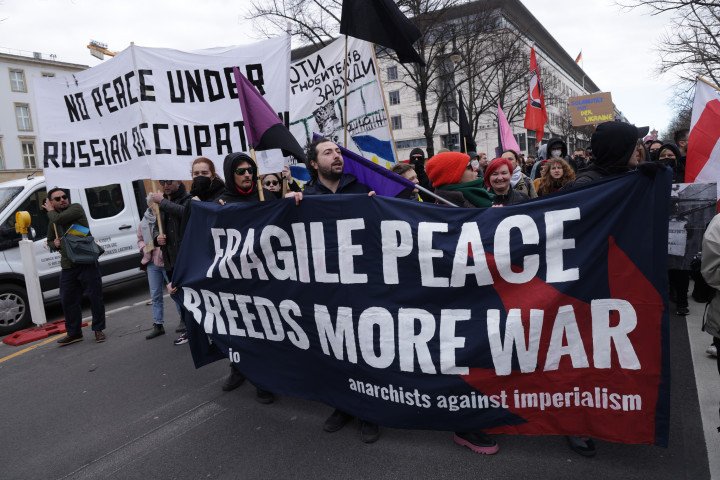
Freedom and security
Security for the West has been a key argument for Ukraine’s NATO membership. Allowing Russia to pursue its invasion of Ukraine would negatively impact not only Europe and NATO allies but also the wider world. Ukraine’s accession to NATO would bolster global security, acting as a direct counter to authoritarian regimes.
Friends of Europe produced a study, “Ukraine: cost of inaction.” They highlighted that standing by Ukraine would show that international legal norms still hold weight. Allowing Russia to “shred” international law would send the message “that might is right.. and would open the way for other malevolent powers to feel free to impose their will on vulnerable neighbors.”
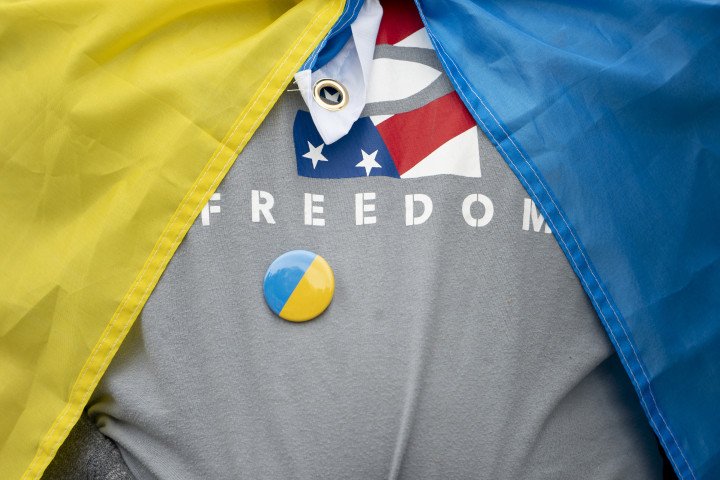
Russia’s invasion of Ukraine is the largest European war since World War II and poses substantial security threats to all NATO members. When faced with the threat from Russia, both Finland and Sweden swiftly applied to join NATO and are now actively strengthening the Alliance’s security.
Ukraine joining NATO would present to other countries worldwide that they are free to participate in the NATO Alliance if they choose to. Reinforcing the idea that any free and sovereign country can seek freedom, peace, and security, and protect its borders from authoritarian regimes and threatening global powers should it want or need to.
Military expertise
Ukraine has proven that it can and will fight relentlessly for its freedom and security.
For almost three years, Ukrainian military forces have defied expectations and resisted what was, before the full-scale invasion in 2022, regarded as the world’s second most powerful army. Ukraine now has one of Europe’s largest and most capable armies.
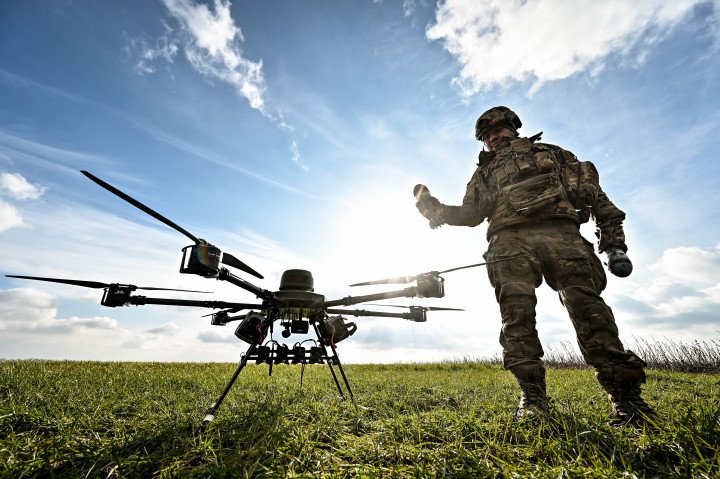
Ukraine has developed and experienced a unique combat environment and has advanced knowledge of the most advanced technologies used on any battlefield. Ukraine for the first time in world history, created a special armed forces branch called the Unmanned Systems Forces (USF). USF is dedicated to drone warfare where Ukraine has unique expertise.
Ukraine could provide vital knowledge and expertise to NATO allies, skills that could only be acquired on the ground while working in real battle environments.
"Ukrainian experience in technology and warfare, combined with Allied expertise, has the potential to be the technological foundation for a safer and more secure Europe," said Chief Operating Officer of Brave1, Nataliia Kushnerska.
Commitment and unity
“Ukraine would be a particularly committed member of the NATO alliance. Polls consistently indicate that around three-quarters of Ukrainians back NATO membership, representing a higher level of public support than many existing alliance members,” noted Paul Grod, President of the Ukrainian World Congress.
Russia, through its illegal invasion of Ukraine, is seeking signs of weakness in the West. Inviting Ukraine to join the alliance would demonstrate unity, especially during a time when the alliance of authoritarian powers between Russia, Iran, and North Korea is growing who all share Moscow’s desire and dedication to undermine the existing, rules-based world order.
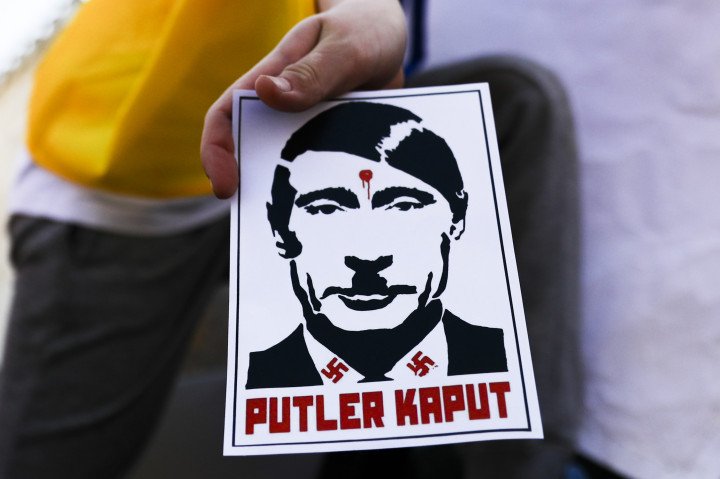
Russia’s Foreign Minister Sergey Lavrov made it clear in an address to UN delegates that Moscow aims to demolish international security, boasting that they want to establish a “new world order”. “Now the West is doing all it can to block it,” Lavrov stated.
This, in effect, shows that Russia recognizes that Ukraine’s alliance with the West threatens their “new world order”. Emphasizing to Russia and other global powers that the West will ensure International law and that principles set out in the UN Charter are respected.
How Ukraine has already shown its worth to NATO
Ukraine’s future is in NATO. Relations between NATO and Ukraine date back to the early 1990s. Since then, NATO said that its relationship has developed into one of the most substantial partnerships.
To seek NATO membership, countries must fulfill certain requirements. These include but are not limited to, combatting corruption, the ability and willingness to make a military contribution to NATO operations, and a commitment to democratic civil-military relations and institutional structures.
Aside from Russia’s illegal invasion, Ukraine has supported several NATO-led operations and missions.
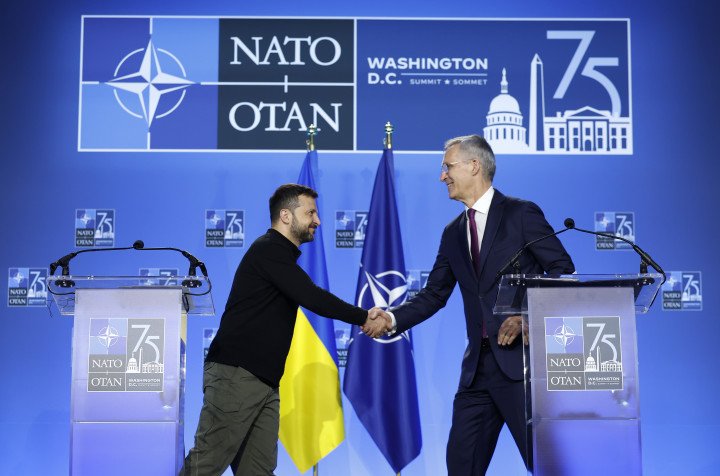
After Russia’s illegal annexation of Crimea in 2014, there have been cyber attacks, disinformation, and other hybrid activities leading to the creation of the NATO-Ukraine Platform on Countering Hybrid Warfare at the NATO Summit in Warsaw in July 2016.
Ukraine has contributed to various peace-support operations, such as operations in Bosnia and Herzegovina. They have supported the Kosovo Force (KFOR) with a heavy engineering unit and have been in support of the International Security Assistance Force (ISAF) in Afghanistan. Ukraine supported the follow-on Resolute Support Mission (2015-2021) to train, advise and assist Afghan security forces. From March 2005 - December 2001, Ukraine contributed officers to the NATO Training Mission in Iraq.
Ukraine deployed ships six times between 2007 and 2010 in support of Operation Active Endeavour, a counter-terrorist maritime surveillance operation in the Mediterranean Sea.
In 2013, Ukraine also contributed to “Ocean Shield,” NATO's counter-piracy operation. In 2016, the maritime operation “Sea Guardian” was launched and Ukraine provided situational awareness in and around the Black Sea.
Ukraine has plenty to offer NATO in return for their invitation. Many Ukrainian supporters of NATO membership say that keeping Ukraine in “geopolitical limbo” only encourages Moscow to prolong the war, and threaten global peace as we know it.
-46f6afa2f66d31ff3df8ea1a8f5524ec.jpg)

-605be766de04ba3d21b67fb76a76786a.jpg)
-2c683d1619a06f3b17d6ca7dd11ad5a1.jpg)

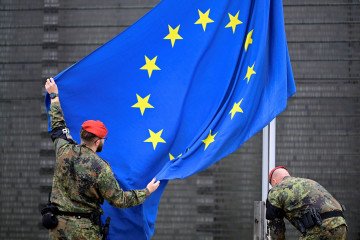
-661026077d315e894438b00c805411f4.jpg)